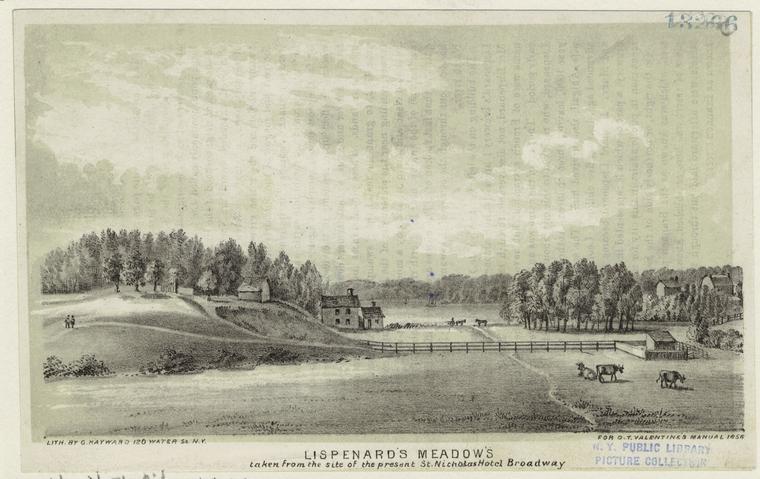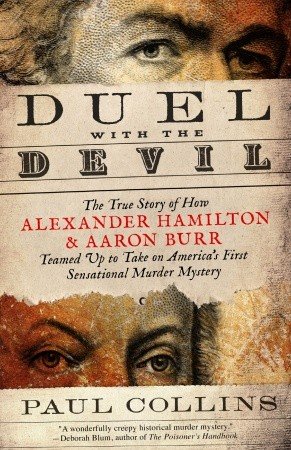No, it’s not about that duel. It turns out the two worked as lawyers defending a young man accused of murder in 1800 New York City. It’s a bizarre and expertly-told story that sheds light on life when our country was still in its childhood.
On a cold, crackling winter night at the end of 1799 a young woman named Elma Sands leaves her boarding house, wearing a fur muff to stave off the winter’s night air. She never returns. Her muff is found two weeks by a child playing on the edge of the Lispenard’s Meadow and shortly thereafter her body was found in a Manhattan Well. Fellow boarder Levi Weeks was quickly suspected, having been seen with her shortly before. Popular gossip convicted him within a few days, but it would be up to the two best lawyers in New York City to defend him in the courtroom. Alexander Hamilton and Aaron Burr were the best at what they did. Despite the lengthy list of differences they had — politically and personally — they were also professionals at the bar.
The city’s greatest political foes — the very men whose reputation jurors would be weighing at the ballot box in a month’s time — now sat before the crowd, united in this case of murder. And now, in the middle of this group of men — these war heroes and skirmishing politicians, these bitter rivals and old comrades in arms — there stood the young carpenter whole life lay in their hands. ~Pg. 120
Collins writes this narrative nonfiction with lush details and sweeping storytelling. It’s difficult to believe that Manhattan was once (not very long ago) a largely rural island with a small urban area at the southern end, but Collins makes it possible to imagine. New York City was a much smaller place, both in area and population. People were more likely to know one another as neighbors and friends. It was far less easy to become lost in anonymity. And out of necessity, professionals often held several jobs, or took work in variants of their main trade. Hamilton and Burr each had their own careers as lawyers, politicians, and businessmen. In fact, involvement with a well and water company would complicate matters in the trial.

The prosecutor in the case was one amazingly named Cadwallader Colden. He too is a vivid personality as painted by Collins.
A strange business to be attending to, a murder mystery: strange, at least, along the mercantile stretch of brokers and brick stables in the neighborhood. Before Cadwallader Colden had set up offices at 47 Wall Street, the building had served as a coffee merchant. On one side of his office was as hop selling hogsheads of rum and porter. On the other side, Major Leonard Bleeker — a distinguished patriot who’d witnessed Cornwallis surrendering at Yorktown — was busy opening a stockbroker’s office.
Amid the bustle of old soldiers and new business, Colden cut a curious figure. … Instead of scrutinizing property lines and wills, he was now confronted with prosecuting every variety of thieving, banditry, dishonesty, and depravity that New Yorkers could offer. ~Pg. 70-1
Collins draws from newspaper reports, a few personal notes and from the trial transcript. Thankfully he does not simply rely on pages of testimony to tell the story for him. He refers to statements, quoting them occasionally, but always couching them in context and returning to the narrative structure. And at the heart of it all is a truly interesting murder mystery.
Review copy provided by Blogging For Books, via Broadway Books.
______________________________
Paperback: 304 pages
Publisher: Broadway Books; Reprint edition (June 3, 2014)
Language: English
ISBN-10: 0307956466
ISBN-13: 978-0307956460
Product Dimensions: 7.9 x 5.1 x 0.7 inches

